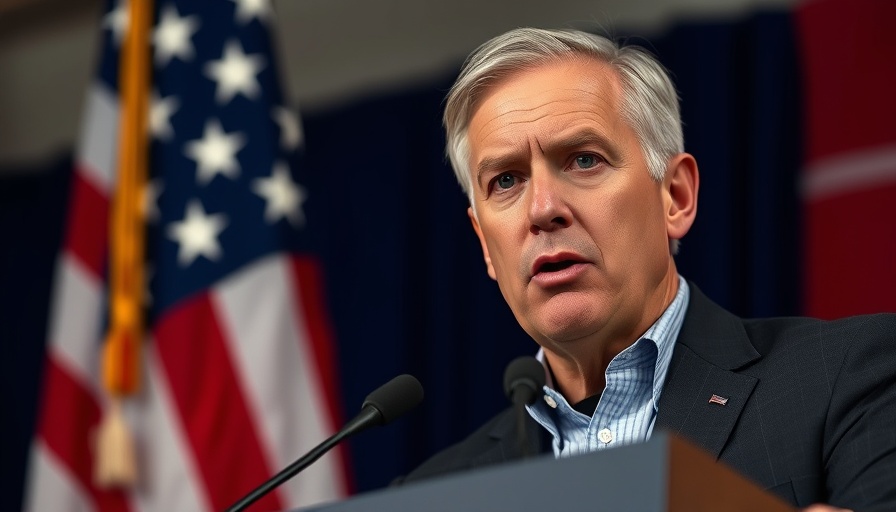
Indiana Senator Calls for Apologies Over Racism Claims
In a significant development for the WNBA and Indiana Fever fans, Republican Senator Jim Banks through a recent statement is urging the league and the team's management to apologize to their supporters following allegations of racism. The senator described the situation as 'demeaning' and emphasized the need for accountability among public entities.
What Sparked the Controversy?
The senator's remarks emerged amid growing scrutiny after an incident involving star player Angel Reese, who has faced backlash over her comments and conduct on and off the court. The situation ignited debates surrounding racism not only in sports but across various social sectors, challenging institutions and their narratives about inclusivity and diversity.
The Broader Implications of Racism in Sports
Racism has a long-standing history in sports, often surfacing in public discourse related to athlete conduct, fan behavior, and team management. This recent call for apologies underlines how essential it is for organizations to recognize and address systemic issues that may alienate fans or perpetuate stereotypes. In addition, it raises questions about how well sports organizations voice their values amidst controversies, especially when dealing with high-profile athletes.
Fan Perspectives: Why Apologies Matter
For many fans, an apology from the WNBA and the Fever would signify an acknowledgment of their concerns. Many feel a deep emotional connection to their teams, making them likely to react strongly against perceived injustices. In recent years, fans have increasingly demanded transparency and integrity from the organizations they support, driving home the point that professional leagues must prioritize their community’s sentiments.
Historical Context of Race in American Sports
Understanding the role of race in sports requires a look back at significant milestones, such as the breaking of the color barrier by Jackie Robinson and the ongoing fight for equality highlighted by movements like Black Lives Matter. This context is critical as it sheds light on why contemporary incidents resonate strongly with audiences today. They act as a reminder of not only the struggles faced in the past but also the challenges that persist in the present.
Future Trends: The Push for Inclusion in Sports
As we navigate through complex conversations about race and equity, expect more leagues to implement programs aimed at fostering diversity and inclusion. These proactive measures can help avert the kind of backlash currently faced by the WNBA and can ensure that fans feel valued and respected. Considerations include specialized training for staff, community outreach programs, and developing platforms for underrepresented voices.
Conclusion: A Call for Reflective Action
The conversation initiated by Senator Banks serves as a crucial reminder of the role institutions play in fostering a respectful environment for all fans. As discussions about racism and social justice continue to grow in importance across American sports, the broader sporting community must follow suit, championing equitable principles both within the arenas and in the stands. If you identify with the values of equity and would like to support movements pushing professional sports towards inclusivity, consider voicing your opinions or joining advocacy groups that focus on these important conversations.
 Add Element
Add Element  Add Row
Add Row 



 Add Row
Add Row  Add
Add 


Write A Comment